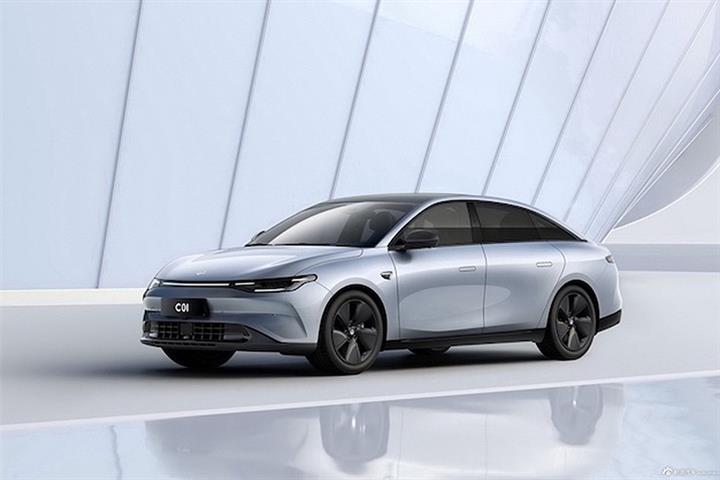 Chinese EV Startup Leapmotor Won’t Enter Chip, Mobile Sectors, Founder Says
Chinese EV Startup Leapmotor Won’t Enter Chip, Mobile Sectors, Founder Says(Yicai Global) Jan. 16 -- Leapmotor will not be getting into the semiconductor and mobile phone businesses, unlike a string of rivals that set out plans to do so last year, according to the founder of the Chinese electric vehicle startup.
Leapmotor will avoid these fields because profits would be thin, with competition in the two sectors already heating up, Zhu Jiangming said in a recent interview with Yicai Global. “These areas are too crowded,” he said.
Annual shipments of chips self-developed by Dahua Technology, Leapmotor’s parent company and the world's second-biggest supplier of security products, once stood in the millions, with sales in the billions of Chinese yuan, but the business could only break even or turn a small profit, he said, adding that the same is true in the handset sector.
Hangzhou-based Leapmotor was the auto electronics division of Dahua before it became operationally independent in 2015 and launched its first EV in 2019. Zhu also co-founded Dahua. Leapmotor's sales soared 154 percent to 111,200 vehicles last year, and it listed on the Hong Kong Stock Exchange at the end of September, following in the footsteps of rivals.
Unlike Nio and other competitors that are committed only to the independent development of key technologies, Leapmotor also produces all core parts by itself, said Zhu, who also chairs the carmaker.
Leapmotor's vertical and integrated supply chain model enables it to squeeze out about a 10 percent profit margin from third-party suppliers, Zhu said. The value of systems and parts independently developed by the firm account for 70 percent of all electronic components of each car, he added, noting that Leapmotor can further lower the cost of parts if different EV models use the same platform and it can increase the generalization rate of parts.
Zhu described this business model as a "direct sales, self-supplied model that earns money mostly from parts," but he admitted some disadvantages, such as the high initial resource and asset investment needed to build parts factories and the fact that electric drive systems, in-car entertainment, lamps, instruments, and other parts are only profitable if annual sales exceed 100,000 units.
A research and development team of more than 7,000 from Dahua supports Leapmotor's research on the technical development of auto components, Zhu said. The parent firm mainly makes surveillance cameras and sensors and provides cloud platforms and algorithms.
Leapmotor reported a profit margin of minus 8.9 percent in the third quarter of last year, narrowing from minus 25.6 percent in the previous quarter and minus 44.5 percent a year earlier, as the company's operating performance is quickly improving thanks to a rapid increase in sales volume. Leapmotor may have a profit margin over zero this year, Zhu predicted.
Zhu told Yicai Global that he disagrees with the 'winner takes it all' idea that is popular among other EV startups founded by former executives of tech and internet companies. Instead, he believes several players can enjoy a slice of the market.
“There are about 20 large carmakers in the world and 50 others that sell less than two million units per year," Zhu said. "I think the number of carmakers may fall to 20, but it will not be too low."
This is because vehicle products have very long development cycles, meaning that the competition process is also very long, Zhu noted, adding that every time a new product enters the market, an opportunity for rivals to catch up appears.
Editors: Tang Shihua, Futura Costaglione